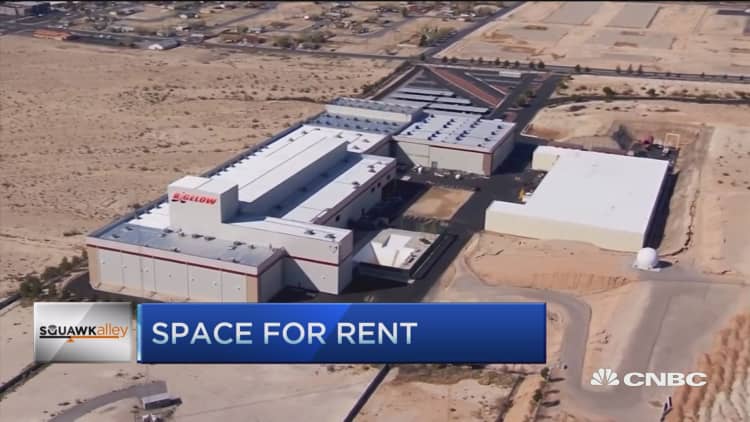NASA is looking for ideas from the U.S. space industry for an advanced Mars orbiter that the agency hopes to launch in the 2020s. Boeing, Lockheed Martin and Northrop Grumman are among the companies expressing initial interest.
The space agency already has a series of orbiters at Mars, although some of them are aging and need replacement. Also, older orbiters cannot handle the higher bandwidth necessary for not just data but voice, video and other critical functions that could later support human exploration of the red planet.
"The orbiters play a key role in that communication cycle and provides us a critical infrastructure that we use today and will continue to use into the future — all the way through the time that humans will be exploring Mars," said Jim Green, NASA's planetary science division director.
According to a NASA statement last week, the new orbiter would provide high-resolution imaging and advanced communications capabilities. It could also offer optical communication technology, which could increase transmission speed and allow the agency to carry more data and have greater flexibility for missions. Also, the future orbiter may use high-power solar electric propulsion to improve overall performance and capabilities in deep space.
NASA's Jet Propulsion Laboratory plans to award multiple concept study subcontracts with a price of $400,000 per subcontract in June. The companies selected in the process would have four months to complete the concept studies for the spacecraft.
"Right now we're investigating alternatives and we're trying to scope with where the industry stands today and capabilities that exist out here," said Jim Watson, NASA's Mars exploration program director. "By the fall time frame, we'll have the information gathered and then we'll be considering what we do with that in terms of the path forward."
SpaceX founder and CEO Elon Musk has expressed strong interest in Mars exploration and colonization, but the private company declined comment for this story. Earlier this month, the billionaire visited NASA's Kennedy Space Center after the company's successful Falcon 9 rocket launch and upright landing. During the visit, Musk indicated he would have an announcement in the fall on his plans for establishing a colony on Mars.
Meantime, there is no shortage of other companies openly expressing interest in offering ideas for NASA's advanced Mars orbiter.
"We have a strong heritage building these spacecraft so we definitely have interest working with NASA on any sort of future studies or future architecture," said Gary Napier, a spokesman for Lockheed Martin, which built the last four Mars orbiters for NASA.
NASA's MAVEN entered Martian orbit in 2014 and is the agency's newest orbiter. Lockheed manufactured MAVEN, which is currently conducting studies of the Martian atmosphere. MAVEN is an acronym for Mars Atmosphere and Volatile EvolutioN mission.

Last year, Lockheed completed assembly of Mars InSight, NASA's next robotic exploration mission set for launch in 2018. Also, Lockheed is the prime contractor for Orion, a crewed spacecraft capable of missions to the moon, asteroids or an eventual trip to Mars in the 2030s.
The launch vehicle to get Orion into deep space is the Space Launch System, a next-generation exploration rocket system whose prime contractor is Boeing.
"We've been building solar electric propulsion satellites for about 10 years now and are the real market leader in that technology," said John Elbon, vice president and general manager for Boeing Space Exploration. "I think it's something we'll be able to help out a lot with, and we of course will respond to NASA's request for information."
Northrop, which supplied the navigation and pointing aids for NASA's Mars rovers, also expressed interest in responding to the space agency's request for ideas.
"Northrop Grumman is a strong proponent of NASA's space exploration goals, and we look forward to working with NASA on concepts for the advanced Mars orbiter the agency is considering launching in the 2020s," Northrop Grumman said in a statement to CNBC.


